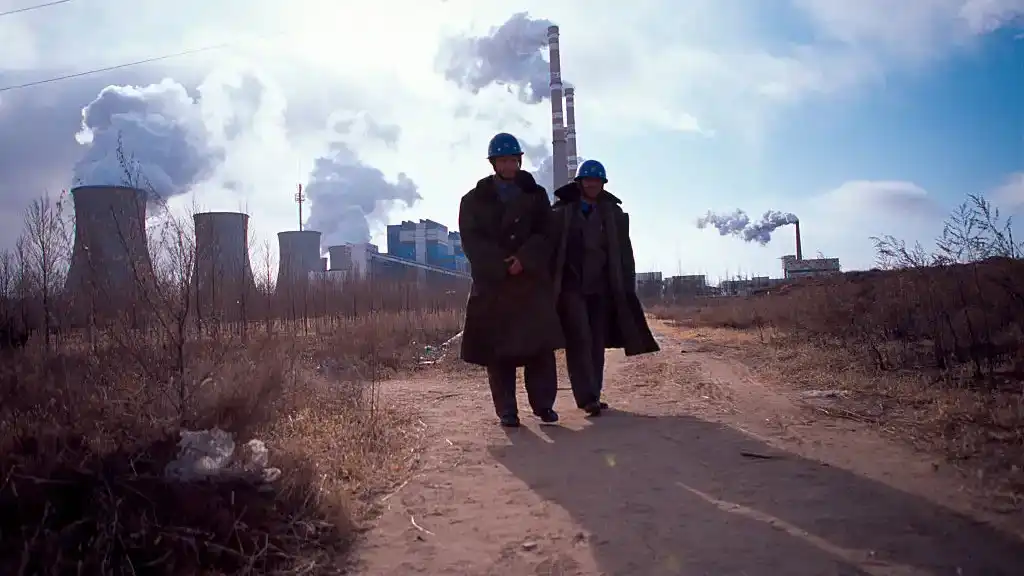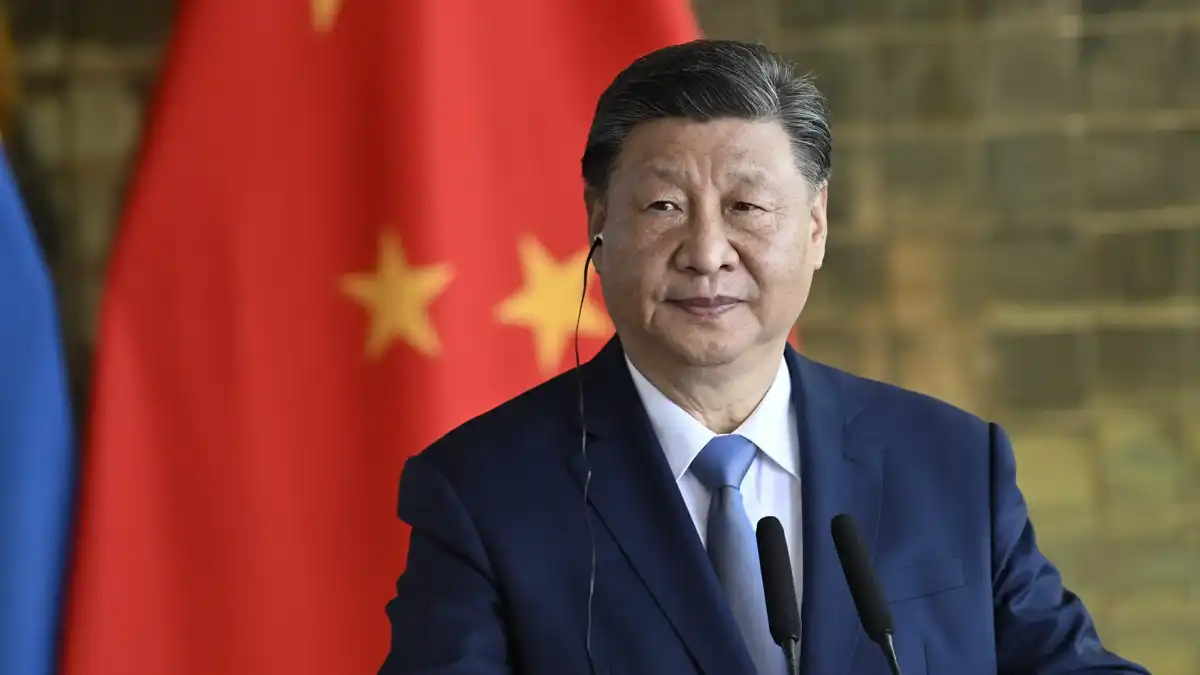- 34 Posts
- 8 Comments

 1·8 days ago
1·8 days agoA report citing Chinese state-controlled media:
Chinese professionals eye Europe as US visa uncertainty grows
According to the South China Morning Post, recent uncertainty over the U.S. H-1B visa program has led many Chinese professionals to consider leaving the United States for Europe. Confusion followed a U.S. government proposal to introduce a US$100,000 application fee for H-1B visas. Although later clarified to apply only to new visas, the announcement triggered panic among skilled workers and their families.

 12·17 days ago
12·17 days agoClean Arctic Alliance: “Growt in Arctic shipping is bad news”
Dr Sian Prior, Lead Advisor to the Clean Arctic Alliance said: “The Arctic is already under severe stress – its waters are warming and acidifying faster than the global average due to global climate change. As a result, sending container ships across the Arctic raises a lot of red flags.”
Although a shorter route might result in lower CO2 emissions, the Arctic has been largely undeveloped in terms of transit shipping, due to the risks posed by sea ice. An increase in shipping in the Arctic will lead to
- an increase in shipping’s global climate impact due to black carbon emissions – which have a disproportionately higher impact when emitted in the Arctic,
- an increase in disturbance to wildlife and to communities dependent on marine resources due to increased ship pollution including underwater noise in a comparatively quiet ocean, and
- an increase in the risk of damaging oil spills.
“In addition, the need for ice-strengthened ships or accompanying ice breakers will not necessarily reduce CO2 emissions. Ahead of the development of a new shipping route via the Arctic, an impact assessment should be undertaken and considered strategically to ensure that the highest level of environmental protection be adopted. Any ship operating on this route should be ice-strengthened due to the risk of ice and issued with a polar certification under the international Polar Code. Furthermore, there should be no use or carriage of residual fuels including very low sulphur fuel oil (VLSFO), instead ships should use distillate fuels or other new fuels with low black carbon emissions, and implement noise abatement plans.”

 01·2 months ago
01·2 months agoRussia started that war.
Addition:
Putin orders Russians to be trained in using shotguns to shoot down drones
Russian ruler Vladimir Putin has instructed the Defence Ministry to prepare a course for Russians, both military personnel and volunteers, on using smoothbore weapons to shoot down drones.

 01·2 months ago
01·2 months agoThis comes from the Russian government.
Senior lawmaker Vladimir Gutenev, who also heads the State Duma’s Industry and Trade Committee, recently urged Russians to prepare for “regular and necessary” internet shutdowns.
“We’re used to paying with cards or smartphones and having constant connectivity,” he said. “But now it’s important to accept temporary restrictions as a necessity.”
You can look it up yourself - in Russia and elsewhere - using the [Shutdown Tracker Optimization Project](Shutdown Tracker Optimization Project):
According to Russian internet monitoring project Na Svyazi, authorities shut down the internet more than 650 times in June alone, most frequently in the cities of Nizhny Novgorod, Saratov, Tula, Omsk, and Rostov.
There is ample evidence that the Russian government frequently shuts down the internet, and this is said not by some media but the Kremlin itself.
Addition:

 01·2 months ago
01·2 months agoAnd considering China’s total exports in 2024 were valued at US$3.58 trillion, it’s kind of insignificant in a sense that it signifies a shift in trade policy.
Comparing China’s total trade to the share of a relatively small country like Israel makes no economic sense. Israeli exports are ‘insignificant’ also to the EU and the US, but this says nothing if not related to the size of its economies.
China is the largest seller to Israel among all the countries in the world.
Btw, China is also selling surveillance tech to Israel, a fact that is elegantly ignored by many here on Lemmy who are (rightfully) criticizing Israel and “the West” for its support. We must realize, though, that Israeli authorities are using facial recognition technology to entrench apartheid, as stated by Amnesty (and others) some time ago.
The Israeli authorities are using an experimental facial recognition system known as Red Wolf to track Palestinians and automate harsh restrictions on their freedom of movement … In a new report, Automated Apartheid, [Amnesty International] documents how Red Wolf is part of an ever-growing surveillance network which is entrenching the Israeli government’s control over Palestinians, and which helps to maintain Israel’s system of apartheid […]
Researchers identified the vendors of several cameras they found in occupied East Jerusalem. They documented high-resolution CCTV cameras made by the Chinese company Hikvision installed in residential areas and mounted to military infrastructure; some of these models, according to Hikvision’s own marketing, can plug into external facial recognition software. Amnesty International also identified cameras made by a Dutch company called TKH Security, in public spaces and attached to police infrastructure […]
In an article, a newspaper titled, How Chinese firm linked to repression of Uyghurs aids Israeli surveillance in West Bank.

 0·2 months ago
0·2 months agoIn 2024, China imported goods worth $2.8bn from Israel, while Hong Kong imported an additional $2bn, according to the UN Comtrade database. With the combined $4.8bn, China is worldwide the second-largest buyer of Israeli goods behind the US.
China was, however, the biggest exporter to Israel with $19bn, more than twice the volume of second US with $9.4bn, and Germany with $5.6bn.
That’s more than ‘ambiguous talk’ but has rather long been materializing I would say.

 0·2 months ago
0·2 months agoChina’s growth can usher in a new era for China–Israel cooperation, Chinese diplomat says
“Chinese capital can help Israeli startups expand globally, while Israeli technology can support China’s industrial upgrading,” explains Xiao Junzheng, Chinese Ambassador to Israel.














Mark Elliott, Professor of Public Law at the University of Cambridge, provides a good analysis on Starmer’s comments.
The entire comment makes a good read: https://publiclawforeveryone.com/2025/10/08/on-china-the-official-secrets-act-and-enemies-is-the-prime-minister-wrong